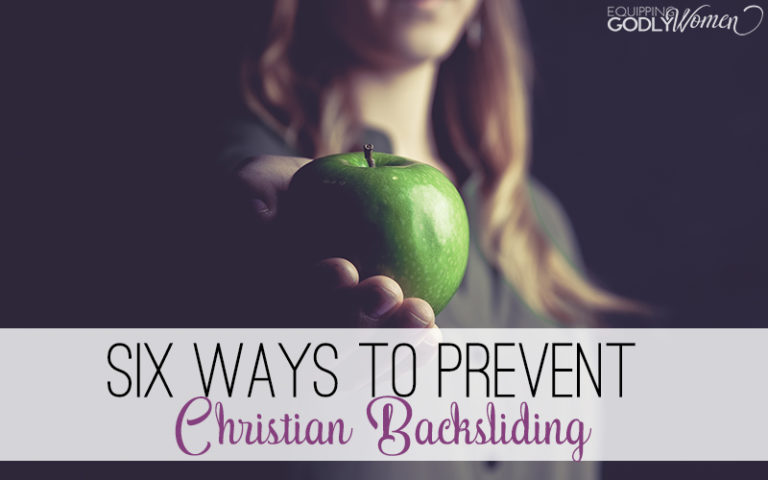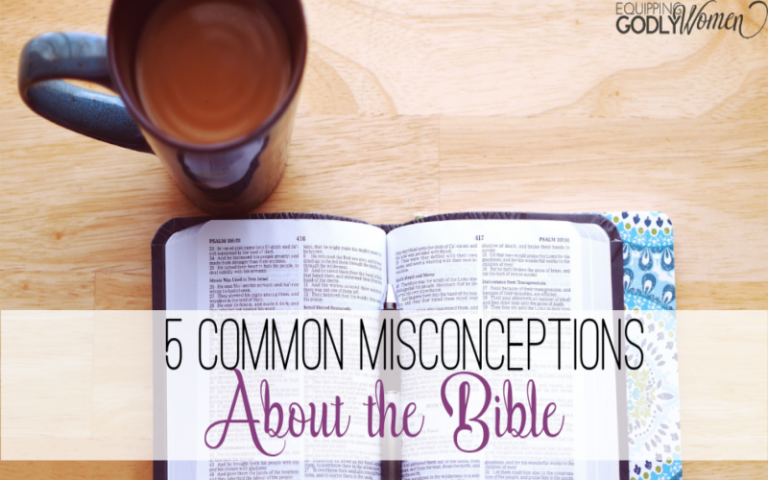Sola Fide: Is Faith Alone Enough for Salvation?

Is sola fide (faith alone) enough for salvation?
Growing up, I was taught that it was.
I remember learning Romans 10:13, which promises us:
“Everyone who calls on the name of the Lord will be saved.”
I was taught that it didn’t matter what we did or how bad our sins were. As long as we said the Sinner’s Prayer, we were good to go.
If we did good works (and we should!), that was great. But all our works, merits, and accomplishments had absolutely no bearing on our salvation.
We could commit the worst crimes, and it wouldn’t matter. God would still love us, forgive us, and let us go to Heaven to be with Him someday.
While there is certainly a great deal of truth to this (God can and does love us and forgive us no matter what), the way sola fide is presented can often miss the mark.
The truth is: The Bible is full of verses that say our works DO matter.
We can’t earn our salvation. Faith is necessary. But faith alone isn’t enough.
*This post contains affiliate links, which means if you make a purchase, I may make a small commission at no additional cost to you. This helps cover the many costs of running this site and allows me to help provide for my growing family. Thank you!
What is Sola Fide? (Meaning and Definition)
One of the five solas of the Protestant Reformation, sola fide means faith alone. The doctrine of sola fide teaches that Christians receive justification by faith alone, and that we cannot earn our salvation through good works.
Catholic priest turned Protestant reformer Martin Luther taught sola fide in response to his belief that the Roman Catholic church was erroneously teaching a works-based salvation (with the sacraments) that did not line up with Scripture.
Since then, sola fide has become one of the core doctrines of the Reformed church and many other Protestant denominations.
The five solas of the Protestant Reformation are sola fide (faith alone), sola scriptura (Scripture alone), sola gratia (grace alone), solus Christus (Christ alone), and soli Deo gloria (glory to God alone).
Why Protestants Believe in Justification by Faith Alone (Sola Fide)
Because “Protestant” refers to a group of various Christian denominations started as a result of Martin Luther’s Protestant Reformation, there is no one official Protestant position.
That being said, Protestant denominations who do believe in justification by faith alone (sola fide) typically base their beliefs on Bible verses such as:
- Ephesians 2:8-9: “For it is by grace you have been saved, through faith—and this is not from yourselves, it is the gift of God—not by works, so that no one can boast.”
- Romans 3:23: “and all are justified freely by his grace through the redemption that came by Christ Jesus.”
- Romans 3:28: “For we maintain that a person is justified by faith apart from the works of the law.”
- John 3:16: “For God so loved the world, that he gave his only Son, that whoever believes in him should not perish but have eternal life.”
- John 5:24: “Very truly I tell you, whoever hears my word and believes him who sent me has eternal life and will not be judged but has crossed over from death to life.”
- John 6:29: “Jesus answered, ‘The work of God is this: to believe in the one he has sent.'”
- Acts 10:43: “All the prophets testify about him that everyone who believes in him receives forgiveness of sins through his name.”
- Galatians 2:15-16a: “We who are Jews by birth and not sinful Gentiles know that a person is not justified by the works of the law, but by faith in Jesus Christ.”
- Philippians 3:9: “and be found in him, not having a righteousness of my own that comes from the law, but that which is through faith in Christ—the righteousness that comes from God on the basis of faith.“
That’s a lot of verses that say we receive justification, salvation, or eternal life through faith!
And we can all agree: Our salvation is a free gift from God that none of us deserves. (Romans 6:23)
However, and this is important, none of these verses say that we are saved by faith alone (sola fide).
The Only “By Faith Alone” Verse in the Bible
There is only one verse in the entire Bible that contains the phrase “by faith alone” and it doesn’t support sola fide.
James 2:24 says, “You see that a person is considered righteous by what they do and not by faith alone.”
Yes, we are justified through faith. No, we cannot earn our salvation.
But nowhere does the Bible teach we are saved by faith alone.
In fact, there are just as many Bible verses that refute the idea of justification by faith alone (sola fide).
Bible Verses that Refute Justification by Faith Alone (Sola Fide)
As a child, I simply believed what my Baptist church pastor and Sunday School teachers taught me about theology and the gospel.
However, once I started reaching sola fide for myself, I was surprised to see how many Scripture verses clearly refute the doctrine of justification by faith alone. For example:
Matthew 19:16-17
“Just then a man came up to Jesus and asked, ‘Teacher, what good thing must I do to get eternal life?’
‘Why do you ask me about what is good?’ Jesus replied. ‘There is only One who is good. If you want to enter life, keep the commandments.'”
You could argue that this command was given under the Old Covenant, before Jesus’s death and resurrection fully established the New Covenant we’re under today (which is true). However, there’s more…
Matthew 19:29
“And everyone who has left houses or brothers or sisters or father or mother or wife or children or fields for my sake will receive a hundred times as much and will inherit eternal life.“
This verse highlights the importance of not taking one single verse out of context, even if it’s meaning seems simple and straightforward. No Christian denomination is teaching that salvation come by abandoning your family or property… even though that’s what this verse says.
Matthew 25:31-46
“Then he will say to those on his left, ‘Depart from me, you who are cursed, into the eternal fire prepared for the devil and his angels. For I was hungry and you gave me nothing to eat, I was thirsty and you gave me nothing to drink, I was a stranger and you did not invite me in, I needed clothes and you did not clothe me, I was sick and in prison and you did not look after me…’
“Then they will go away to eternal punishment, but the righteous to eternal life.” (vv. 41-43, 46)
In this parable, Jesus is describing the final judgment that will happen at the end of the Earth. Here, the sheep and goats are separated, not by what they believe, but by the actions they did while on Earth.
Romans 2:6-7
“God ‘will repay each person according to what they have done.’ To those who by persistence in doing good seek glory, honor and immortality, he will give eternal life.“
The apostle Paul wrote these verses (and the ones to follow) after the New Covenant was thoroughly established. They still apply to us today.
Romans 2:13
“For it is not those who hear the law who are righteous in God’s sight, but it is those who obey the law who will be declared righteous.“
Simply hearing God’s Word isn’t enough. We have to obey it.
James 2:14, 17
“What good is it, my brothers and sisters, if someone claims to have faith but has no deeds? Can such faith save them? … In the same way, faith by itself, if it is not accompanied by action, is dead.“
Simply claiming to have “faith” isn’t enough. Real faith naturally produces good works. If your faith isn’t producing good works, it isn’t real faith.
James 2:19
“You believe that there is one God. Good! Even the demons believe that—and shudder.”
It isn’t enough to simply believe God exists. Even Satan and his demons believe that, and they certainly aren’t going to Heaven or enjoying a close relationship with Jesus Christ.
James 2:21-22, 24, 26
“Was not our father Abraham considered righteous for what he did when he offered his son Isaac on the altar? You see that his faith and his actions were working together, and his faith was made complete by what he did… You see that a person is considered righteous by what they do and not by faith alone… As the body without the spirit is dead, so faith without deeds is dead.”
Salvation doesn’t come through faith alone (apart from works). It comes from faith and works working together.
It’s very easy to find Bible verses that seem to support the doctrine of justification by faith alone (sola fide). Yet, we must be careful to read the Bible as a whole — not pick individual verses out of context.
When you read the Bible as a whole, a completely different picture begins to emerge.
Yes, we are saved through faith, but not faith alone (sola fide). If our faith is real, it will naturally produce good works. Without good works, our faith is dead, hollow, and worthless.
What Do Catholics Believe About Salvation?
Because many people mistakenly believe that the Catholic Church teaches that people are saved by their works (not justified by faith alone), I met with a Catholic priest for clarification. Here’s what I found.
Contrary to popular belief, Catholics do not believe that people can be saved by their works, apart from faith.
In fact, the Catholic Catechism expressly rejects this idea:
“Believing in Jesus Christ and in the One who sent him for our salvation is necessary for obtaining that salvation. ‘Since ‘without faith it is impossible to please [God]’ and to attain to the fellowship of his sons, therefore without faith no one has ever attained justification, nor will anyone obtain eternal life ‘but he who endures to the end.”” (CCC 161)
Catholics believe we are saved through faith in God, but not just any kind of faith. We must have an active, living faith.
It doesn’t matter whether these works are small or large, many or few, because it isn’t our works that save us.
Rather, if we truly believe in God and seek to live for Him, we will naturally produce good works as a result.
The Catechism of the Catholic Church also states:
- “Faith is an entirely free gift that God makes to man” (CCC 162)
- “Salvation comes from God alone” (CCC 169)
See Also: What is Purgatory? What are Indulgences?
Francis Chan on Faith vs. Works
It isn’t only Catholics who believe that true faith results in good works, either.
Francis Chan is one very well-known Protestant pastor and bestselling author who has also debunked the doctrine of sola fide publicly from the platform.
(Start at 29:30 for the relevant — and sometimes humorous! — talk about faith and works.)
True Faith Means Good Fruit Will Follow
So what did I learn about the meaning of sola fide? At the end of the day it turns out that my original beliefs were a great place to start. What is true about sola fide is that works don’t save us — we are only saved by God’s grace.
But this doesn’t mean that works don’t matter. True faith in Jesus and love for Him means that our lives will show that love to others, just like His life did.
Our works are a really great indication of what kind of faith we have — and if we even have faith at all.
And really, doesn’t this just make sense? If you really, truly believed in Jesus, wouldn’t you naturally want to follow him? And of course, by follow Him, I mean keep his commandments and teachings, an outward expression of your inner faith that leads to salvation.
I’d love to hear your thoughts and opinions! What did you grow up learning about the meaning of sola fide? Have your beliefs and your faith changed over time? Leave me a note (or a book 🙂 ) in the comments section below!

Enjoyed this post? Don’t miss the rest of the posts in the series!
The Day I Realized My Religion Got it Wrong
10 Common Catholic Church Myths that Critics Believe
Is the Eucharist Really Just a Symbol?
Who has the Ultimate Authority? A Biblical Look at Sola Scriptura
A Brief Look at the History of Christianity
What All Christians Should Know About Priests, the Pope and Confession
What Do Catholics Really Believe About Mary, Saints and Statues?
Infant Baptism or Believer’s Baptism? Which is Correct?
What is Purgatory? What are Indulgences?
Why Do Catholics….? Honest Answers to Your Burning Questions







Hi Brittany!
You tackle another great topic with much thought and research and I admire all the prayer, time, and questioning that you are putting into this journey…May it continue to bring forth much fruit and faith.
Just wanted to point out one typo that I must bring up since it is bothering me. In this line you wrote, “What I mean is, with the Eucharist–it either is or is not the real body and blood.” I think you need to capitalize “Body” and “Blood” because you are referring to Christ’s Body and Blood and anytime He is mentioned, His names are capitalized. I hope that makes sense and I hope I don’t sound like a “know it all” because that’s not my intentions. I just know that anytime the Eucharistic Christ is mentioned His Body and Blood is always in caps 🙂
Also, I’ve never heard of Francis Chan before so after I listened to part of his video, I googled a little about him and came up with this post that you might find interesting. I know I did: “How Francis Chan Helped Me Become Catholic” https://frontierruminations.wordpress.com/2014/06/06/how-francis-chan-helped-me-become-catholic/
God bless you on your continued journey to seek truth and understanding!
Fixed! Thank you. And no, you don’t sound like a “know it all” — that’s just one of those little details I haven’t learned yet. (And on a related note–loved that “what they don’t teach you in RCIA” article. I actually had heard most everything on the list, but that type of article is DEFINITELY needed. I wonder if I could find the same thing in book form? lol)
And thanks for the links 🙂
Thank you for tackling what can be an emotionally charged topic for many Christians.
As a cradle Catholic, I have always wondered what some Protestants believe: Can an ax murderer automatically go to heaven – no matter what he has done – by just “accepting Jesus as his Lord and Savior”? If that is true, why do we need the 10 Commandments? Why do we have any moral code if belief and acceptance is all it takes?
The important thing that I really appreciate you stressing is that Catholics do NOT believe good works earn you heaven. That is completely false. This is not a points system. It’s a hard concept to understand, but we have to be clear on that. So, thank you.
To be honest, this whole concept shows how differently people handle sin. From my experience, many Protestants believe that sin doesn’t separate us from God – that him dying on the cross was a one time deal and now we’re free to live our lives as we want. But the Catholic Church has a different concept bringing in the free will God gave us by which we can choose to accept his will for us or go against it.
Thank you for continuing this series – looking forward to upcoming posts!
Beliefs vary. Some protestants believe that once you are saved (“justified”), you are always saved no matter what since salvation rests on what God did, not what we do. Others believe that you could be saved, but then lose your salvation later if you turn your back on God. Others believe that if you later turn away, you were never really saved in the first place.
Growing up, I would have said that it depends. If the ax murderer was not a Christian, repented and became a Christian, he would go to Heaven. All his previous sins would not count against him anymore. If he was a Christian, but then he walked away and became an ax murderer, he probably would not. But I don’t know that I believe that your very last work will always trump everything else you did in your life before then (what if he was always a good Christian and then went crazy right at the very end?) — which is why God is the judge–not me!
Does that help at all?
Please feel free not to post this comment if I’m intruding myself in a conversation I shouldn’t be. I won’t be offended, for in full disclosure, I’m a man and a Protestant. These Catholic-Protestant conversations have fascinated me for years though, so this blog interests me. Having been raised in a Baptist/Presbyterian environment, I grew up believing (and still believe) in the principle of once saved/always saved–a principle Brittany accurately describes so far as I can tell. I wanted to also add to and support Brittany’s suggestion that such a principle doesn’t mean Protestants like me believe someone can live any way they want and still be considered a Christian. I do believe that if someone (we can call him John Doe) is in Christ, no sin can then cancel his salvation, as his salvation depends on the work of Christ, not his own. That said, the Bible is clear that Christians are known by their fruits. If John Doe claims to be in Christ then becomes an unrepentant axe murderer, I think it biblically fair to conclude that he never came to a truly saving knowledge of Christ in the first place. Of course, we have to also take into account possibilities of mental illness, etc., so it is difficult to truly know the heart of another in this life, but suffice it to say that Protestants in denominations like the ones I attend believe that our salvation depends on Christ’s work and cannot be cancelled by our sin, but that if we are truly Christian, the work of Christ in us will produce good works. If those good works are totally absent during the course of our lives, we have no right to assume we are in fact Christian and should re-examine our hearts. According to our beliefs, the source of our justification is God’s grace through Christ’s work, the vehicle is the faith that Christ awakens in us, and the evidence is the fruit that such faith produces. Hence, we conclude our salvation is by grace alone through faith alone in Christ alone, but that faith without works is indeed dead, as true faith inevitably produces good works. We just think that those good works don’t really contribute to our justification, which we hold is achieved by the work of Christ alone.
By, all means, comment away! I think this really helps clarify the belief–as I’ve heard Catholics ask before how Protestants can possibly believe they can just go do whatever they want and live however they want and still go to Heaven.
What do you say to 1 John 5:16-17, then, which says that some sins lead to death while others do not? “If you see any brother or sister commit a sin that does not lead to death, you should pray and God will give them life. I refer to those whose sin does not lead to death. There is a sin that leads to death. I am not saying that you should pray about that. All wrongdoing is sin, and there is sin that does not lead to death.”
I would have to research those verses in 1 John more to give a good answer, but a quick scan of commentary suggests that some Protestants interpret “a sin that leads to death” as referring to complete and total rejection of Christ and His Gospel. Not in the sense of someone who simply meets a missionary and doesn’t believe, but in the sense of someone who knew about the faith, outwardly accepted the faith and was part of the visible church, then turned from outward profession of faith with eyes wide open. Such an act deliberately rejects the only path to life and truly does lead to death. Indeed, this sin would be different than that of a believer who, though justified by Christ, is struggling with a sin and whose heart is drawn to repentance because Christ is in his or her life. Based on the view of once saved/always saved, we could not have confidence that the first person will gain spiritual life, because he or she apparently didn’t have it in the first place despite temporary outward profession, has rejected the only path to life, and is on the path of death. For the second person, we could pray with confidence for God to grant them life, because if they are indeed a child of God, He will lead them to repentance of whatever sin they are struggling with. I admit, though, that I may be mistaken in my opinion on these verses in 1 John, as I’ve not studied the verses there very deeply and acknowledge my thoughts as expressed could be flawed and could misrepresent the Baptist/Presbyterian view I’m attempting to express. What would the Catholic interpretation of these verses be?
I believe it is used to point out that some sins (mortal sins) can separate us from the body of Christ and put our salvation at risk, while others (venial sins) do not. Mortal sins have to be serious, you know that they are wrong, and you are doing them of your own free will. Examples: murder, adultery, robbery. Venial sins are any sins that don’t meet one or more of those three qualifications, such as telling a white lie to protect your spouse’s feelings, cheating on a test, losing your temper.
While you wouldn’t want to commit any sin, it only makes sense that some sins are more serious than others. A child stealing a cookie cannot possibly be the same amount of wrong as a serial killer intentionally murdering several people.
DCal90 this quote from your reply: “I … believe that our salvation depends on Christ’s work”
Catholics believe this too 100%
“and cannot be cancelled by our sin”
This is very unbiblical, and contradicts what Jesus says in certain instances, and especially what Paul tells us, along with 1 John.
A huge chunk of Paul’s letters is dealing with Christians that have fallen into sin. He makes a very clear list of those that “will not inherit the Kingdom of God”, after they have fallen into sin. All those sins in that list ARE Mortal sins that 1 John mentions, since Paul makes it very clear that those people will NOT inherit salvation.
The OSAS as is normally called (Once Saved Always Saved) is one of the most dangerous late development beliefs within Protestantism because it creates a false assurance. Some, both Catholic and Protestant, go so far as to say that it is totally diabolical (personally, I agree).
If we sin, but do NOT REPENT, we may think we are ‘saved’ and ‘be assured’ that we are saved, and yet reach the end-of-the-line and find ourselves going down instead of up. Even repentance has different levels. Someone may have a complete change of life, while others continue to struggle with the sin and need to be continuously repenting and praying until they can overcome it and “sin no more”.
“but that if we are truly Christian, the work of Christ in us will produce good works.”
Catholics also believe this 100%.
Brittany and Antonio, thank you so much for your thoughtful replies and your patience with my comments. I realize I come to this blog as an outsider, and naturally, as a Protestant, I disagree with some of the distinction between mortal and venial sins in regard to justification. My understanding of the New Testament and, indeed, the Old, is that any sin whatsoever separates us from our perfect God, unless it is covered by the blood of Christ. Hence the rigidity of Old Testament law, which pointed Israel (and, by implication, us) to our need for Christ due to inability to keep it, and hence the teachings of Christ Himself, where we learn that even thoughts of adultery or hateful insults make us guilty in the eyes of God. That said, I do agree that some sins are more hardened and more serious than others and evidence a more open rejection of Christ than others. Antonio, I know we’ll disagree on some of my statements above, but I did want to note a few points too where I think we agree more than perhaps either of us realize. I fully subscribe to the once saved/always saved view, but I agree with you that this is taken by some Protestants to an extreme. Too often, some Protestants convey, either deliberately or inadvertently, the idea that anyone who has prayed the sinner’s prayer is in Christ, whatever the rest of that person’s life looks like. Like you, I absolutely stand against that idea, as the New Testament is clear that the fruits in someone’s life are evidence for or against their salvation. I think where we disagree is in our interpretation of a fruitless life. I would hold that when Paul and others in the Bible speak of those in the visible church who will not go to Heaven, they are speaking of those who were, whatever their outward professions, never truly Christian in the first place. As their lives progress, their true identity manifests itself. No unrepentant sinner can ever be confident in his salvation, even if, in some point in the past, he has prayed the sinner’s prayer. And I think we also agree that repentance is something that should continue in a Christian’s life–every time he or she sins. That repentance is further evidence of Christ’s work in a person’s life, and when a person remains unrepentant and unconcerned by their sin, we should question whether or not they are truly in Christ. The once saved/always saved view is one that does teach security for a Christian in regard to his or her salvation, but it should never be used to imply that a Christian need not be concerned about sin.
Sounds like we have an awful lot in common but are just defining it different ways! It’s a tricky subject!
I have really enjoyed this conversations and appreciate that we can do it in love..I am a Protestant and will share from my view. There seems to be a misconception that someone can say a magical prayer and now there and can live any old way they choose.This is simply not true.Man is spiritually dead,a slave to sin,no capacity in his will to come to Him. We must be drawn,granted,given life.People are elected Eph. 1, Rom 9 ,
The 10 commandments are given to show us we are law breakers, and that it is impossible to keep them. But Our Savior fulfilled the Law. So the law points us to the perfect Savior who could keep all the commandments.
If Abraham was justified by faith, and this is what we see in Eph. 2:8,9 Then it’s not by any works of the law, any deeds do not get us saved or keep us saved. We have been forgiven as far as the east is from the West.What sins of tomorrow did Jesus not die for? We all would agree we will sin until the day we die. God does not weigh our good and bad on a scale . They have been paid in Full.If a man is converted,Born again, He is a new creation. He cannot and will not be the same. Perfect? no but will live in a new direction.He will have fruits showing that he has been saved. A person who claims Christ but has no fruits will not be saved.I am honestly just trying to follow god and His Word. Not to a burden on man that he has to “do” to make God happy or pleased. He is completely pleased in Christ. If we are in Him then he is pleased with us. Again if we have been given life we now live as a new creation for His Glory not FOR good works,but since we have been saved we will bring forth works.If I am wrong I want to be corrected. i don’t want to hold to a false Gospel if it’s not true. Thanks for listening to my rambles.
Sounds like we’re on the same page here! yay!! 🙂
(Catholics would say *for* good works. That’s not a hill I’m willing to die on 🙂 We are saved. We naturally good good works as a result. If we aren’t–something’s wrong. We don’t do them to earn salvation/justification (which we already have), but because our faith naturally produces them as a result/we WANT to.)
Love this post and love Francis Chan. I am another one who believes we are saved by faith alone, but that faith should produce good works in your life. I know people who say they “believe”, but really don’t show it by the way they live and I find myself questioning that.
I do too. I mean, I know we are all guilty of not doing all of the good works we should. But if someone shows NO evidence that they believe and it makes NO difference in their life–do they really believe? I think it has to manifest in some way to count.
The best way to put all three elements together, Grace, Faith, and Works (Love) is by understanding that everything is started by God’s grace and depends on my response to that grace. My free-will provides the critical element to whether I choose to cooperate or not. If I cooperate with God, I am allowing His grace to move and transform me, and faith (trust in God no matter what) is critical for me to take the plunge and cooperate with Him, especially in things that are difficult to understand.
The more I cooperate with God’s grace, the greater the transformation that takes place within me (God’s work), and God perfects/sanctifies me (Mat 5:48) . This change leads me to do good works (be charitable to others), and all of it is caused by God’s Grace.
Just as I mentioned about the metaphysical change that took place with the Incorruptibles in the previous Eucharist talk, who don’t decay after death, this is solely accomplished by God’s Grace.
So the full understanding of Catholicism in a sentence is:
BY THE GRACE OF GOD, we are saved through our faith; this faith entails by its very nature, good works, always enabled by prior grace, without which it is dead.
That’s quite a sentence! But makes sense to me.
Such great discourse of faith versus works. Proper exegesis is always important when reading out of the scripture.
Thanks, Kimberly! Hope you got something out of it 🙂
As I was reading this my mind was blown. (Grew up catholic, switched to Methodist, just recently went back to Catholic Church.) Then I remembered the teaching of crowns. Build up your crowns in heaven, there are lots of verses. It’s taught with great care in the Methodist church, so as to not be mistaken for works. But I think it can relate and the verses you point out bring it full circle. Thanks for this series!
Mind-blowing, huh? That’s the best compliment I’ve had on this series yet 🙂 I’m not sure how you could separate works from doing things to get crowns…. but I’ll have to investigate the verses more. And you’re welcome!
I came across this in morning prayer today: “For the Son of Man will come with his angels in his Father’s glory, and then he will repay everyone according to his conduct.” Matthew 16:27
Read also Matthew 25:31-46. Super powerful. Those who did not give food to the hungry, clothe the naked, care for the ill and visit the imprisoned will “go off to eternal punishment.” Those are strong word from Jesus about our faith expecting to be active with works.
Great verses! Thanks for sharing.
Still reading along with your series here, Brittany, and enjoying taking the journey with you. It is interesting to me that so much of the divide between Protestants and Catholics that you are exploring here remains in the ‘misunderstood’, ‘misquoted’, and ‘misinterpreted’. The Sola Scriptura approach is broken open when we learn things like “Luther just added the word *alone* on his own”. And the misnomer of working your way to Heaven is broken open when we look at the heart of all things that are authentically married to each other – faith and works being no different. It might seem funny, but the phrase that was called to mind when you wrote “faith IS what saves us, but not just any kind of faith. It has to be an active, living faith that naturally results in good works”…. was one from America’s founding fathers: “We hold these truths to be self-evident…”. That good works would naturally arise from a living faith seems to make sense in that context for me. Anyhow, thank you again for thinking “out loud” on this one.
It’s amazing what you learn when you actually dive in for yourself instead of just taking people’s word for things! Thanks for coming along for the ride!
Hope, something that catches my attention about the “sola scripta” approach is that… it is not in scripture.
If such concept intents to establish that concepts out of scripture are not valid… then it ends up ruling itself out. I believe that’s called a circular thinking. Yet another reason I found hard to swallow the Sola Scripta approach.
Hope it helps on the journey for truth. Self reading and praying with a Humble mind and a humble heart… and God will keep His promise to meet us.
I totally agree both this. In a Bible study I am currently in we have been talking about how works can show our love and thankfulness.
Salvation is by faith, but works are needed to show that faith not dead.
Yep! 🙂